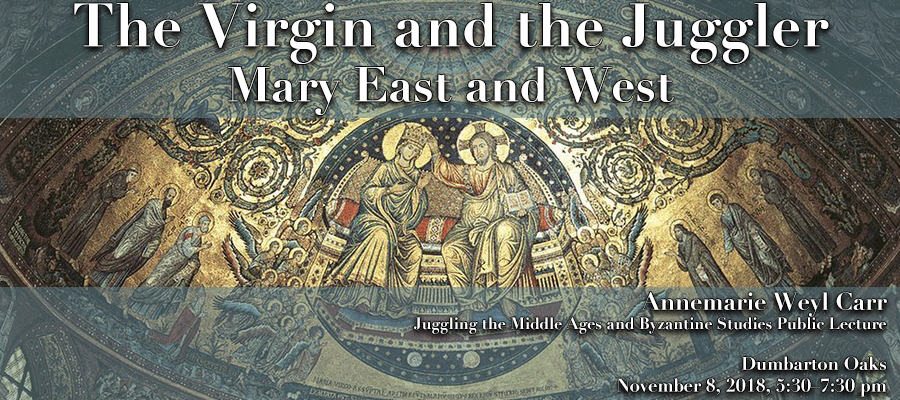The Virgin and the Juggler: Mary East and West, Juggling the Middle Ages and Byzantine Studies Public Lecture by Annemarie Weyl Carr (Southern Methodist University), Dumbarton Oaks, November 8, 2018, 5:30–7:30 pm
Gossamer in Scripture, Mary assumed ecumenical substance as she was mobilized in the political and doctrinal self-definitions of the newly Christian empire of the Romans and its Church. As the ever-virgin mother and transcendent mediator of the incarnate God, she took her place at the very core of Christian faith and practice. But she remained an infinitely variable figure, responsive to inflections of time, place, gender, class, and condition, and with deeply layered—even contradictory—traditions of imagery and veneration. Especially as our medieval world comes to embrace the churches not just of Ireland and Scandinavia, but of Syria, Armenia, Georgia, Ethiopia, Persia, and more, not just Mary, but even terms like East and West become elusive. Nonetheless, the Mary who steps into the story of the Juggler of Notre Dame, and perhaps most especially the form of the Juggler’s devotion to her, are so particular to a time and locality with a distinctive place in our imagination that it seems worthwhile to explore it, and to watch how a kind of beneficial tale that did emerge in the East became such an evocative emblem of the medieval West.
Annemarie Weyl Carr is professor of art history emerita at Southern Methodist University, and has been a visiting professor at the Universities of Chicago, Michigan, Pittsburgh, Delaware, and Yale. She has written or edited books on manuscripts, mural art, and icons, predominantly of Byzantine and medieval Cyprus, including Asinou across Time: Studies in the Architecture and Murals of the Panagia Phorbiotissa, Cyprus (2013). Carr is vice president of the Cyprus American Archaeological Research Institute, is on the editorial boards of Speculum, Studies in Iconography, and Iconographica, and was president of the International Center of Medieval Art.
